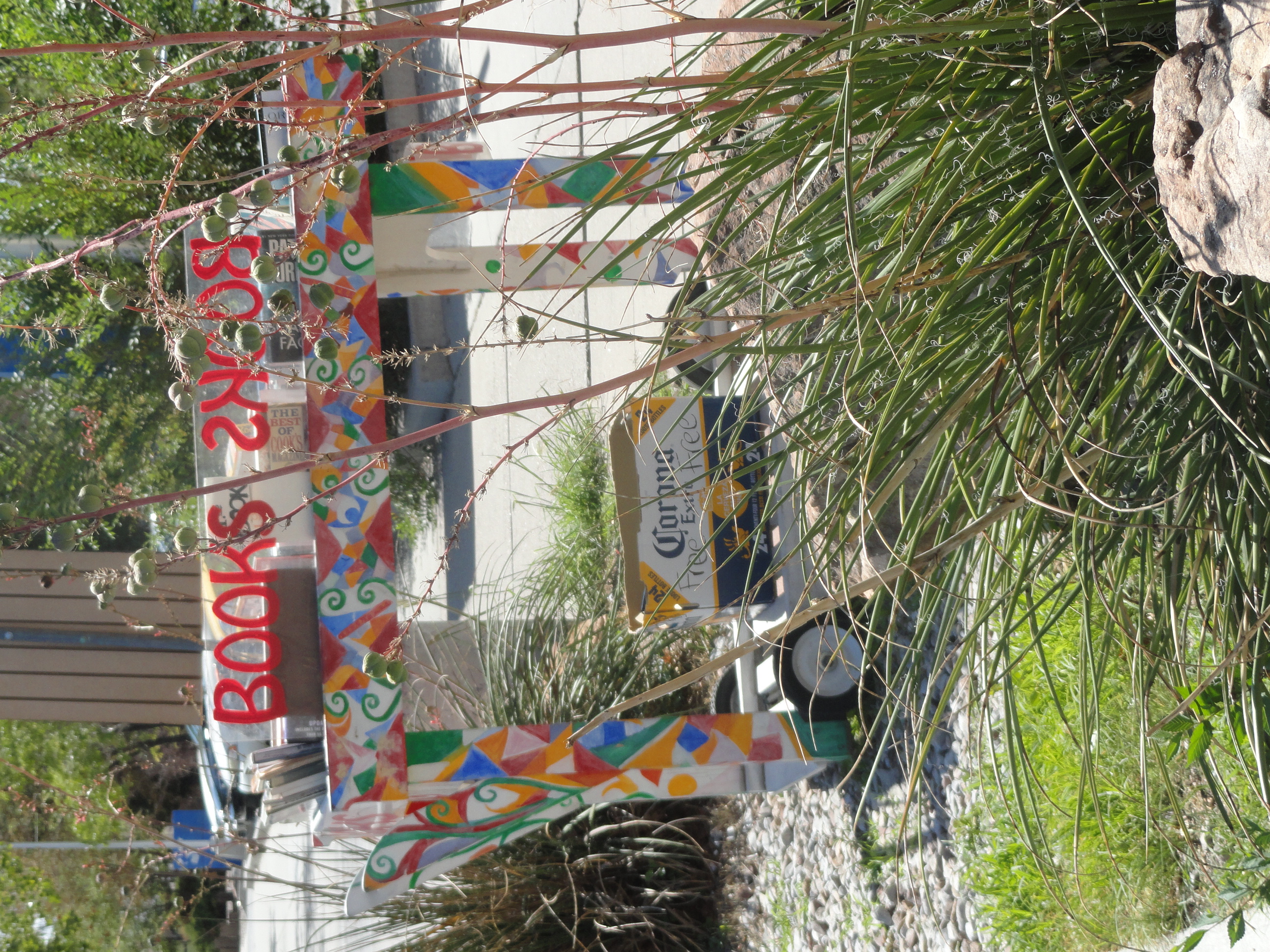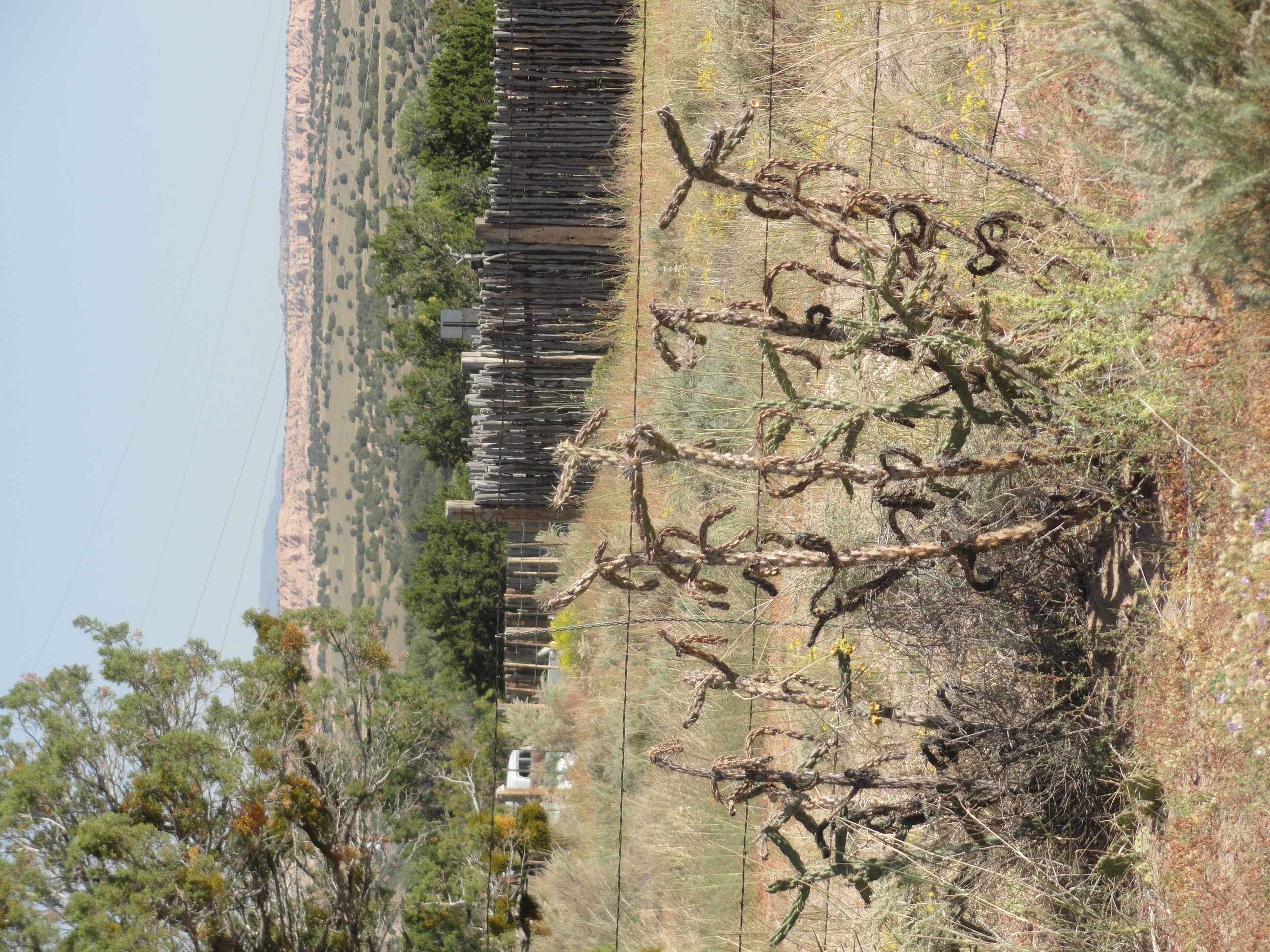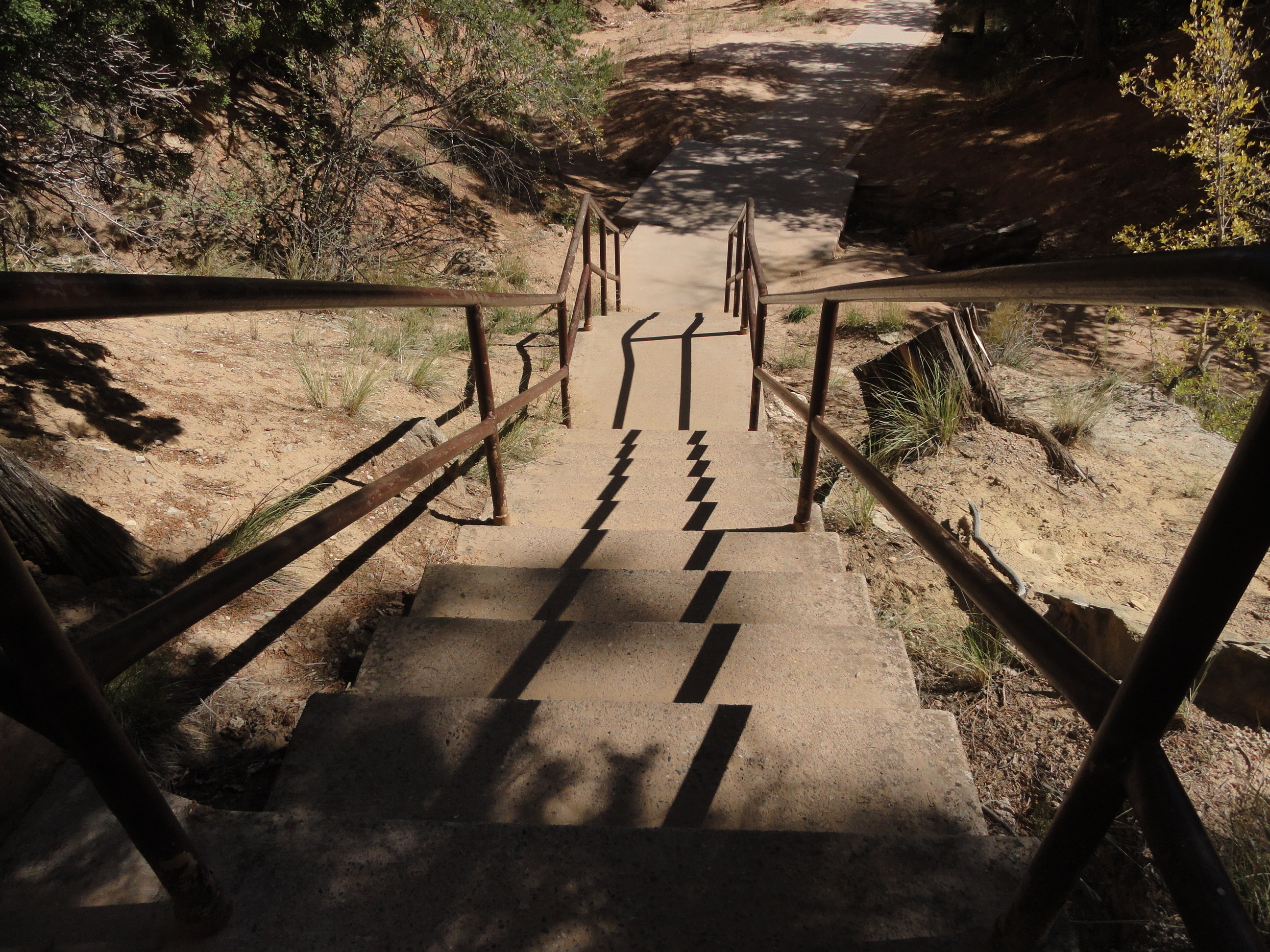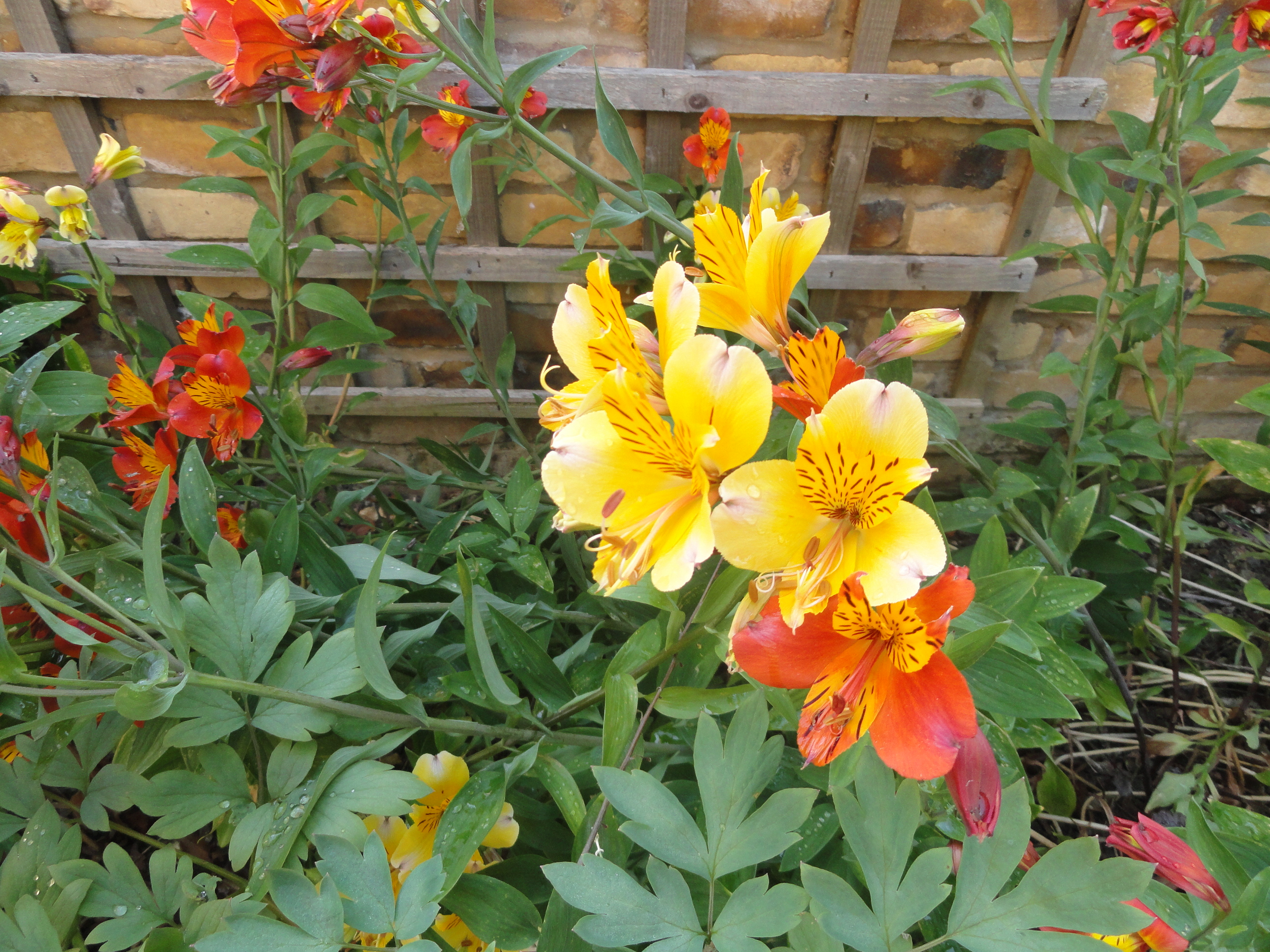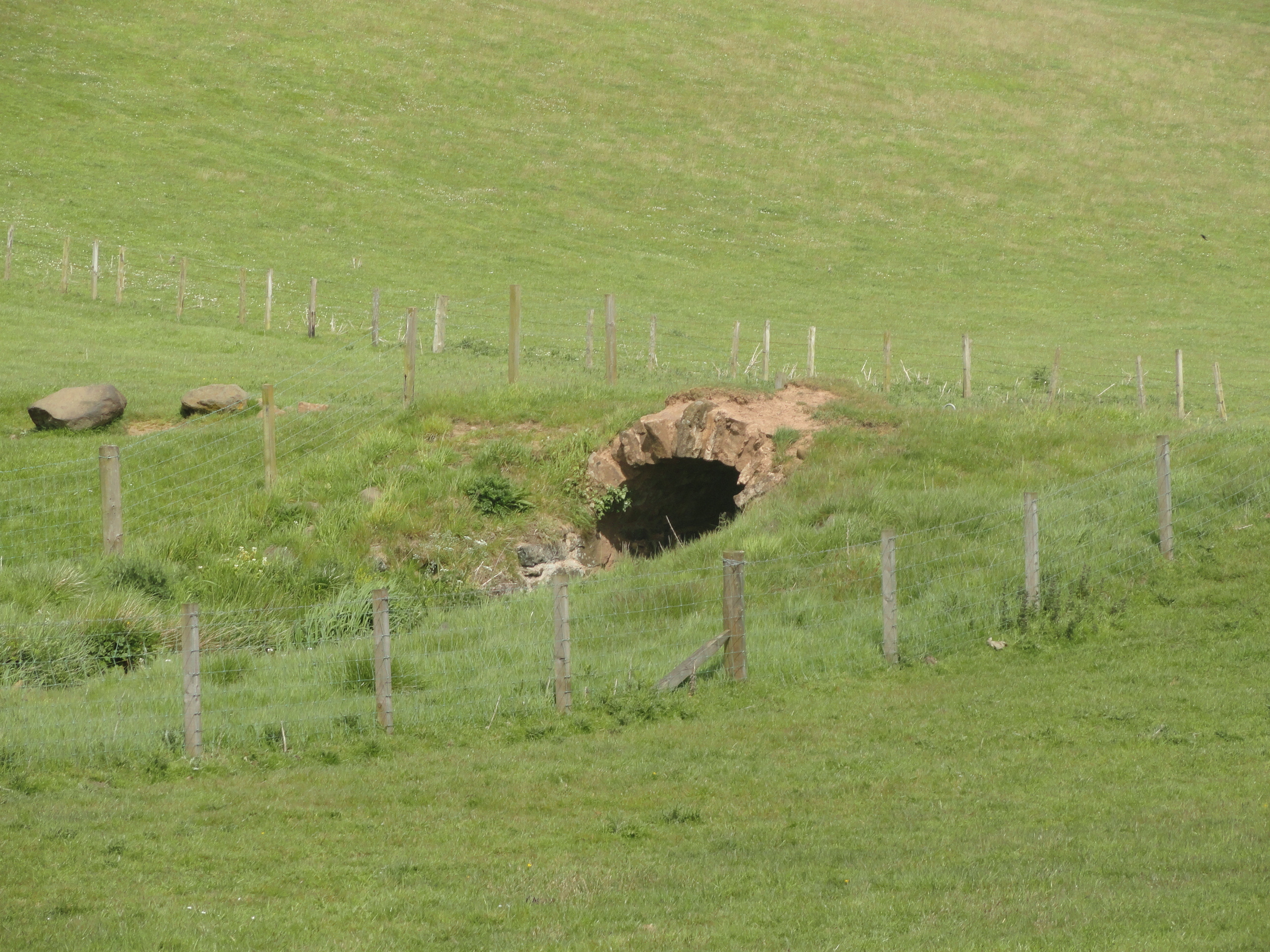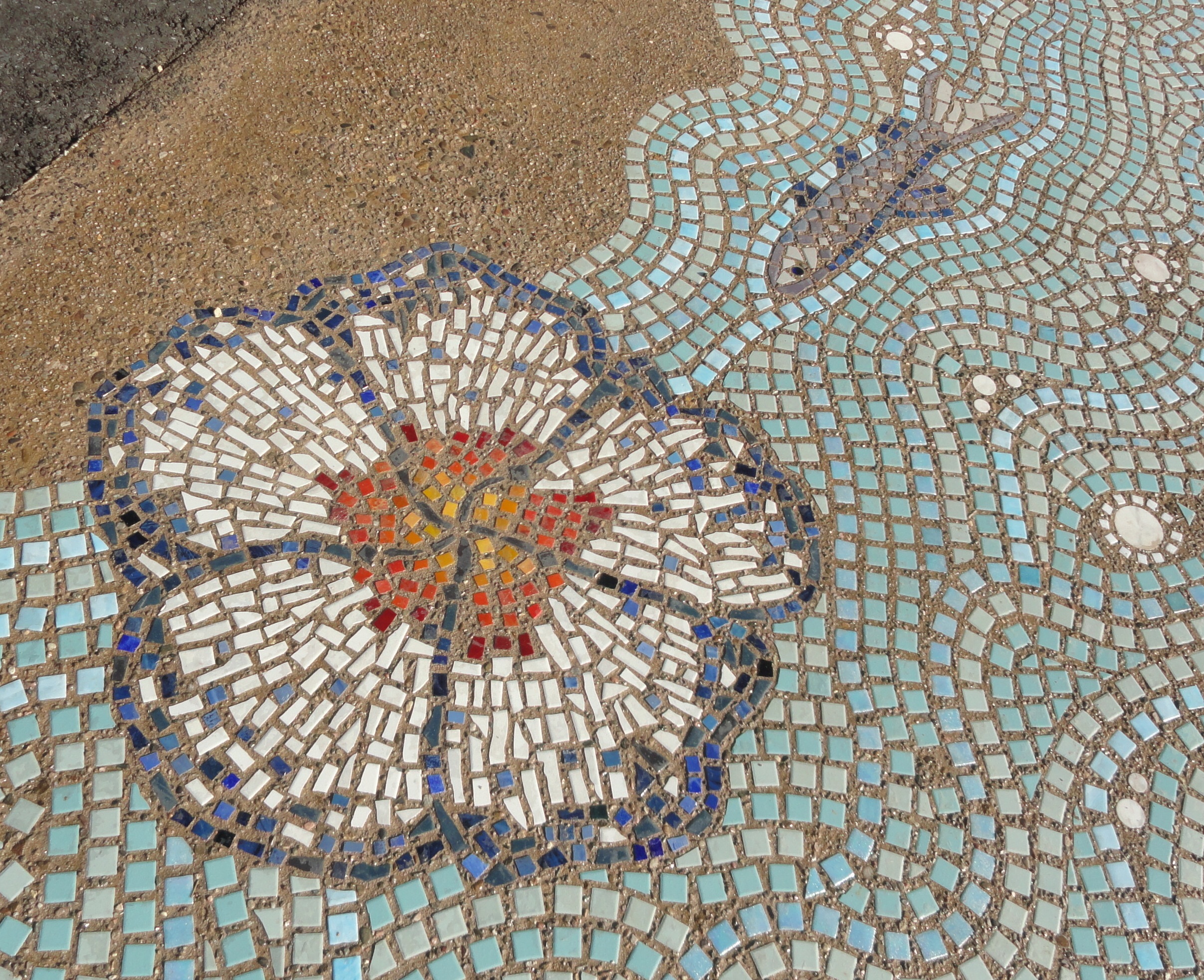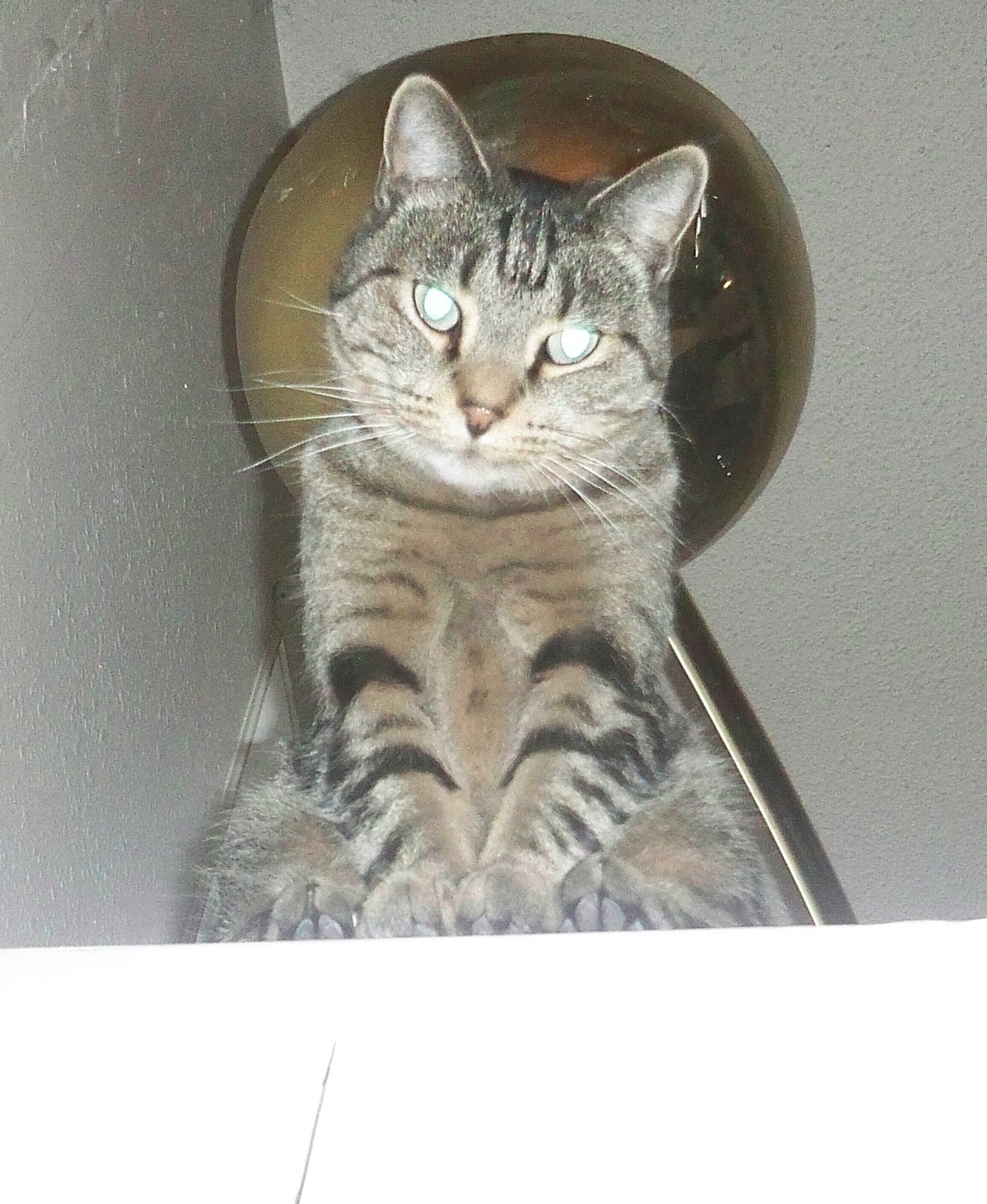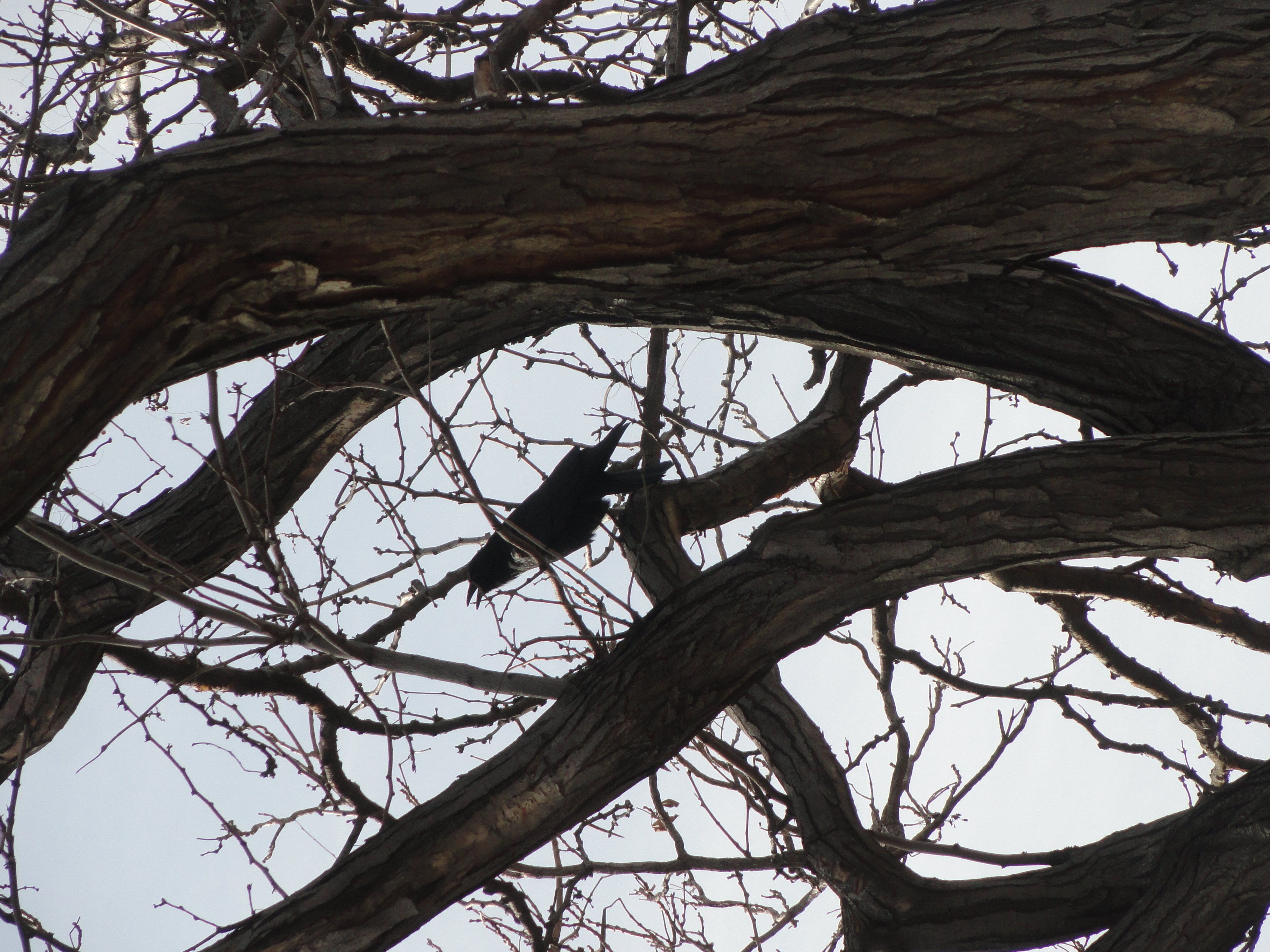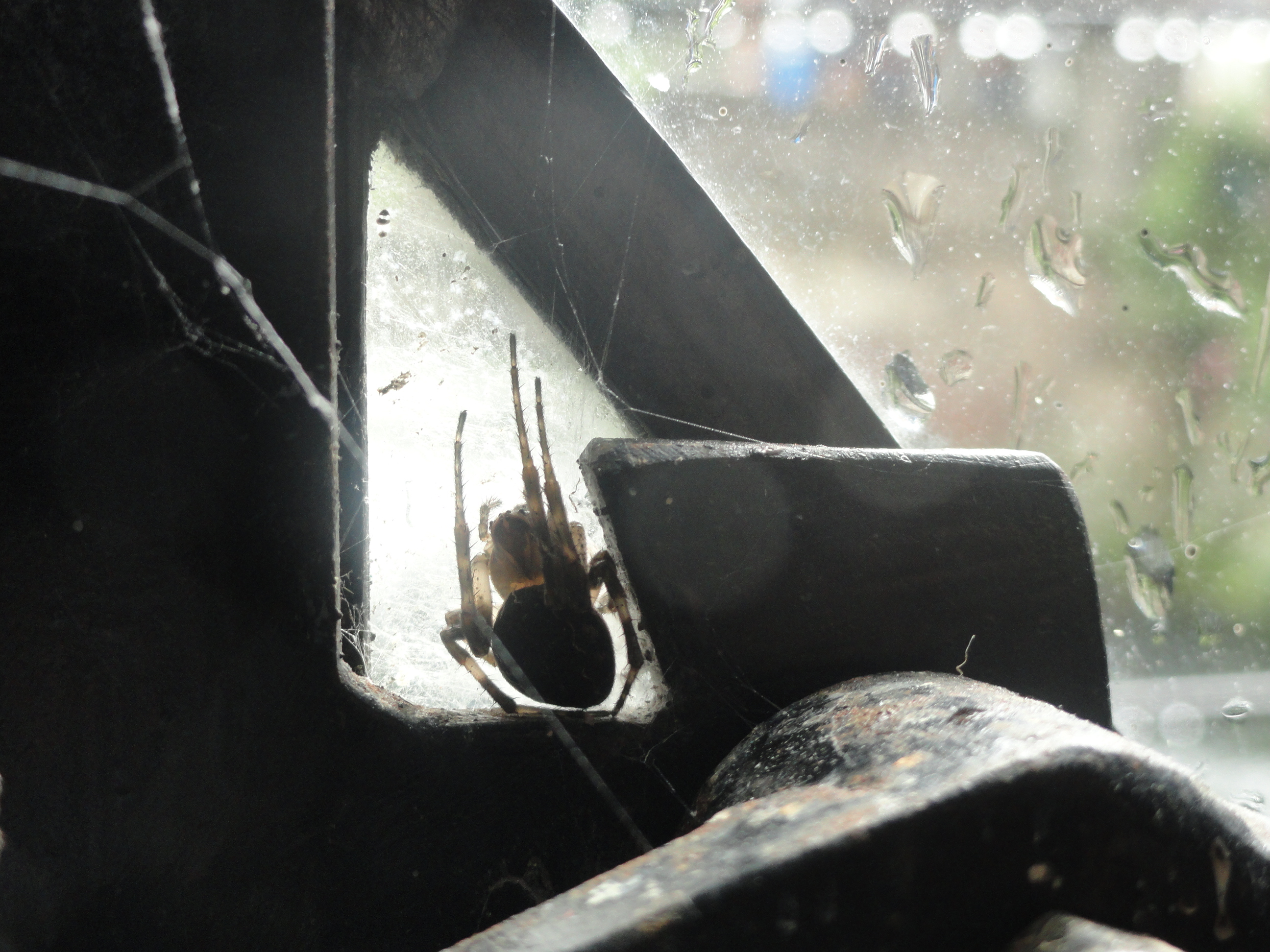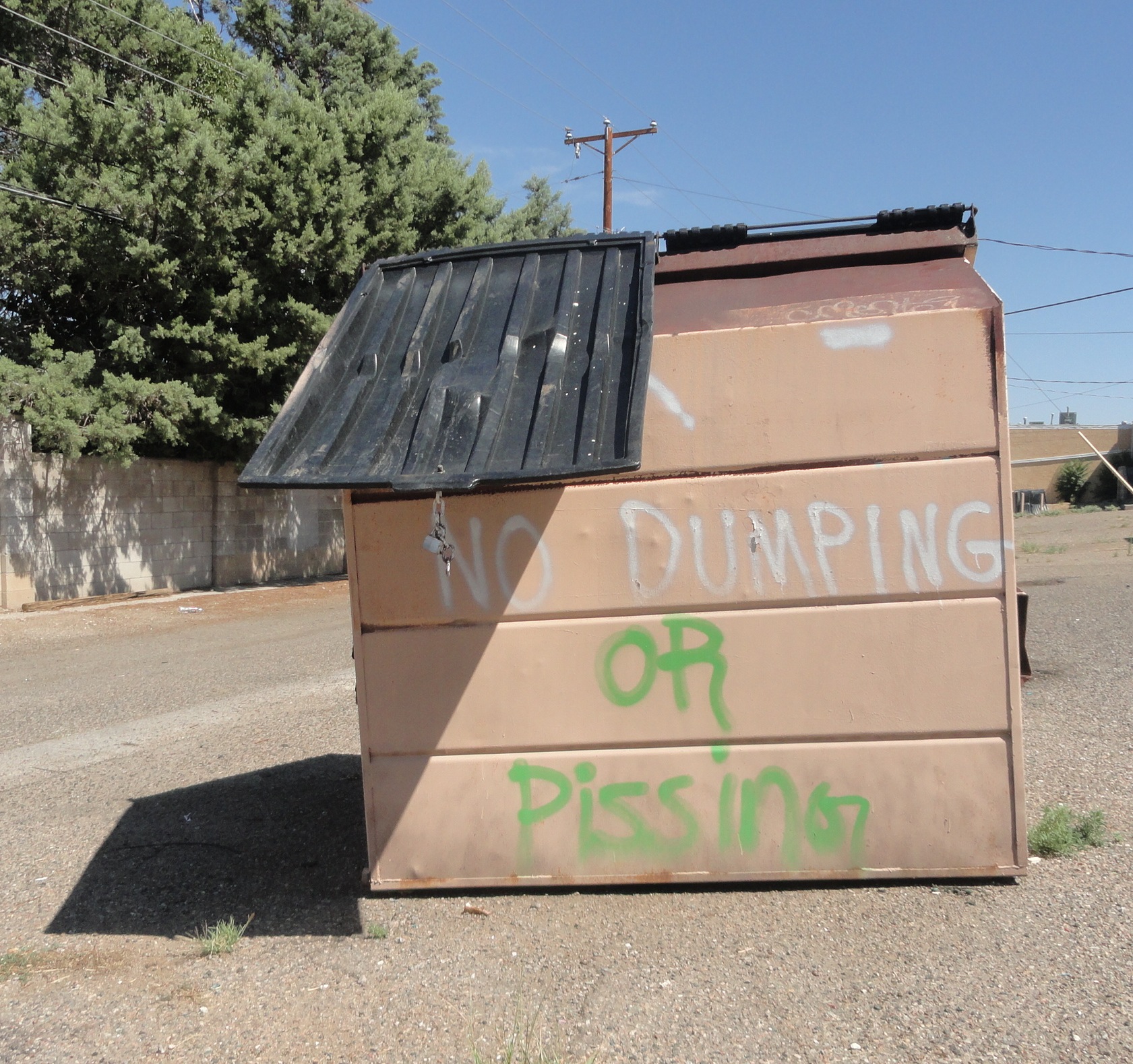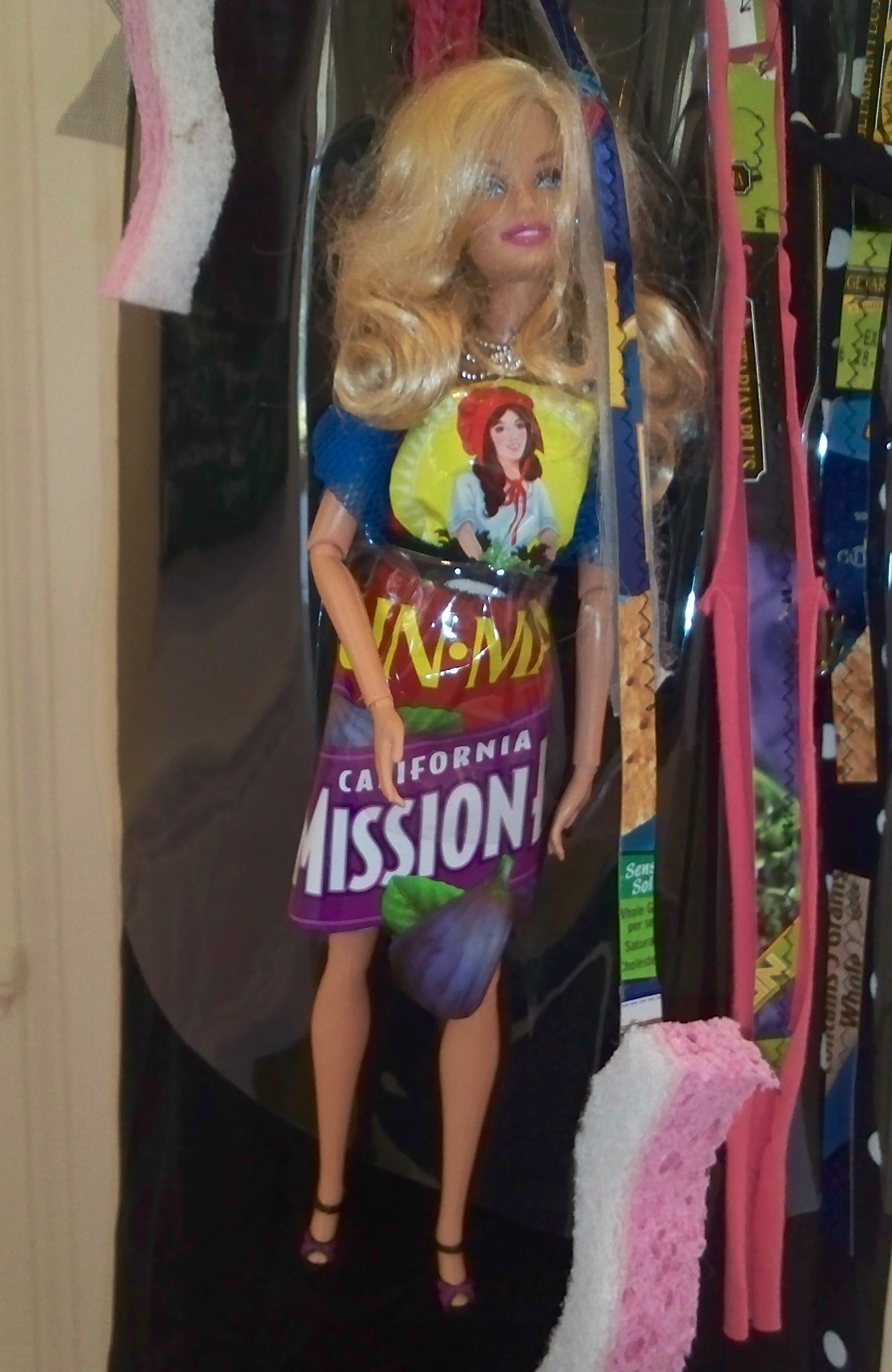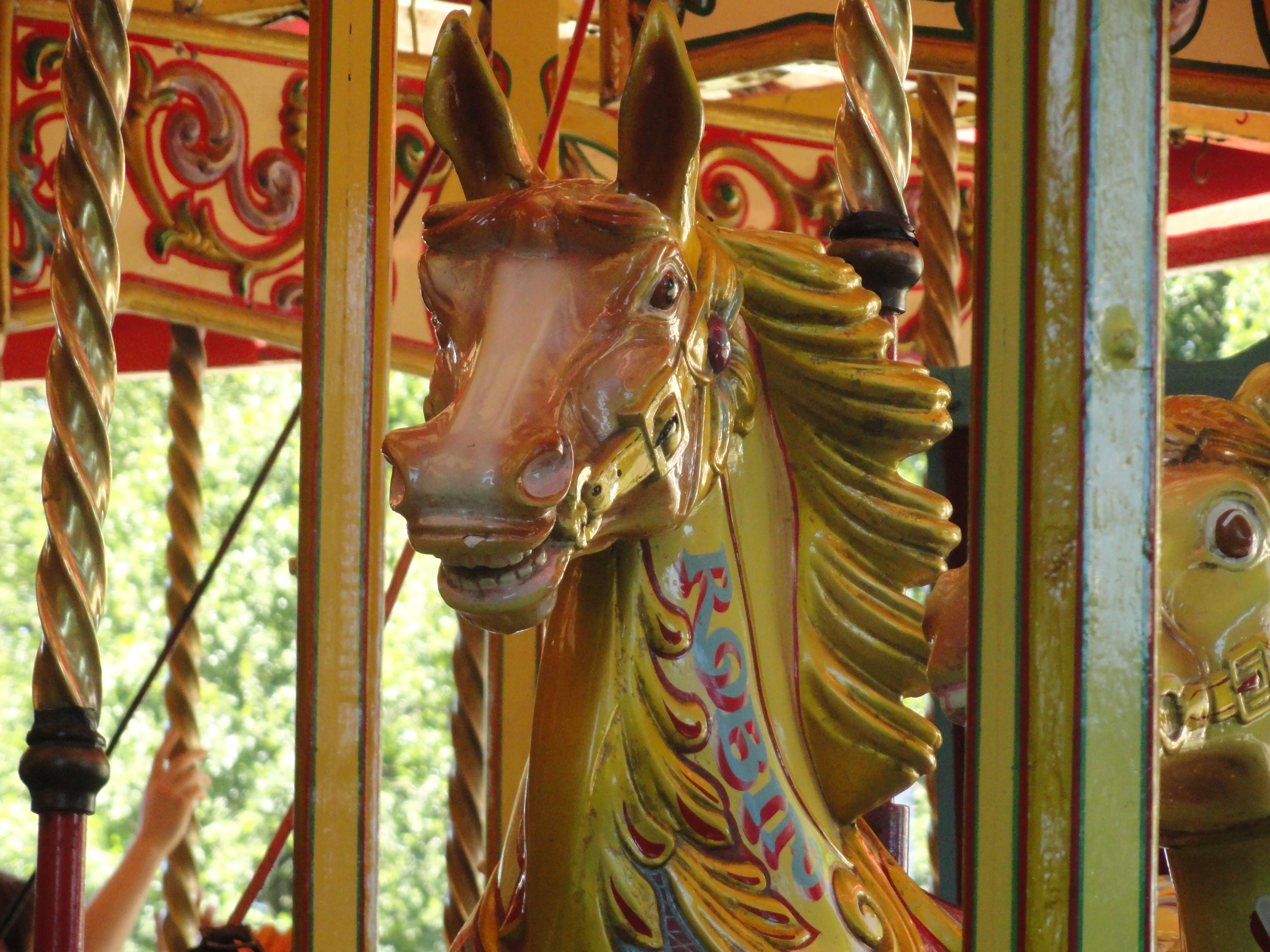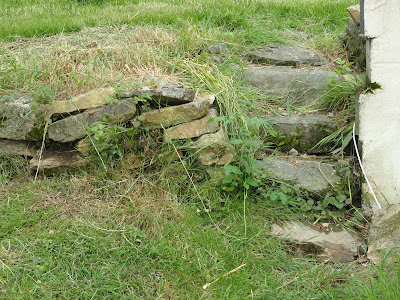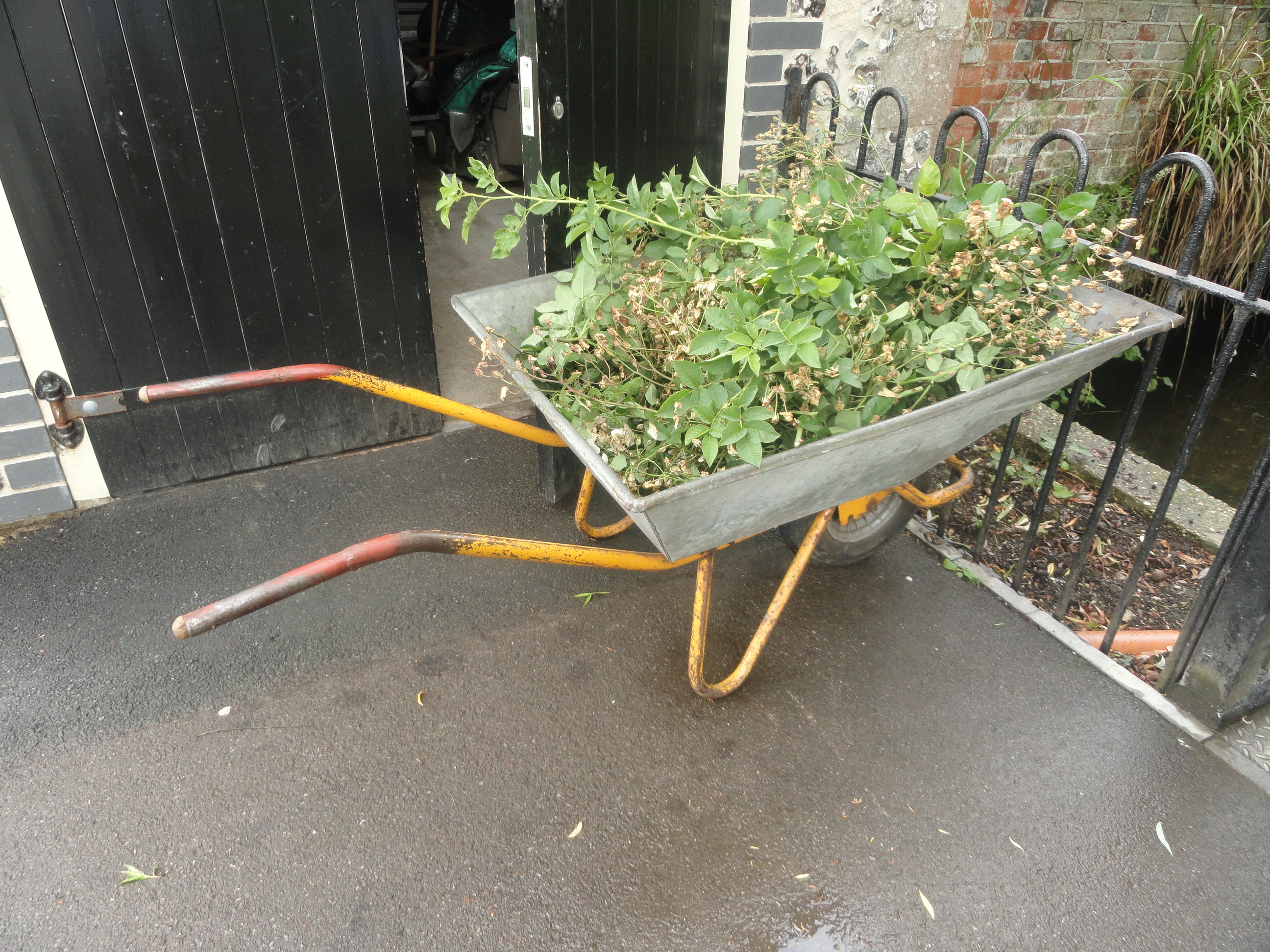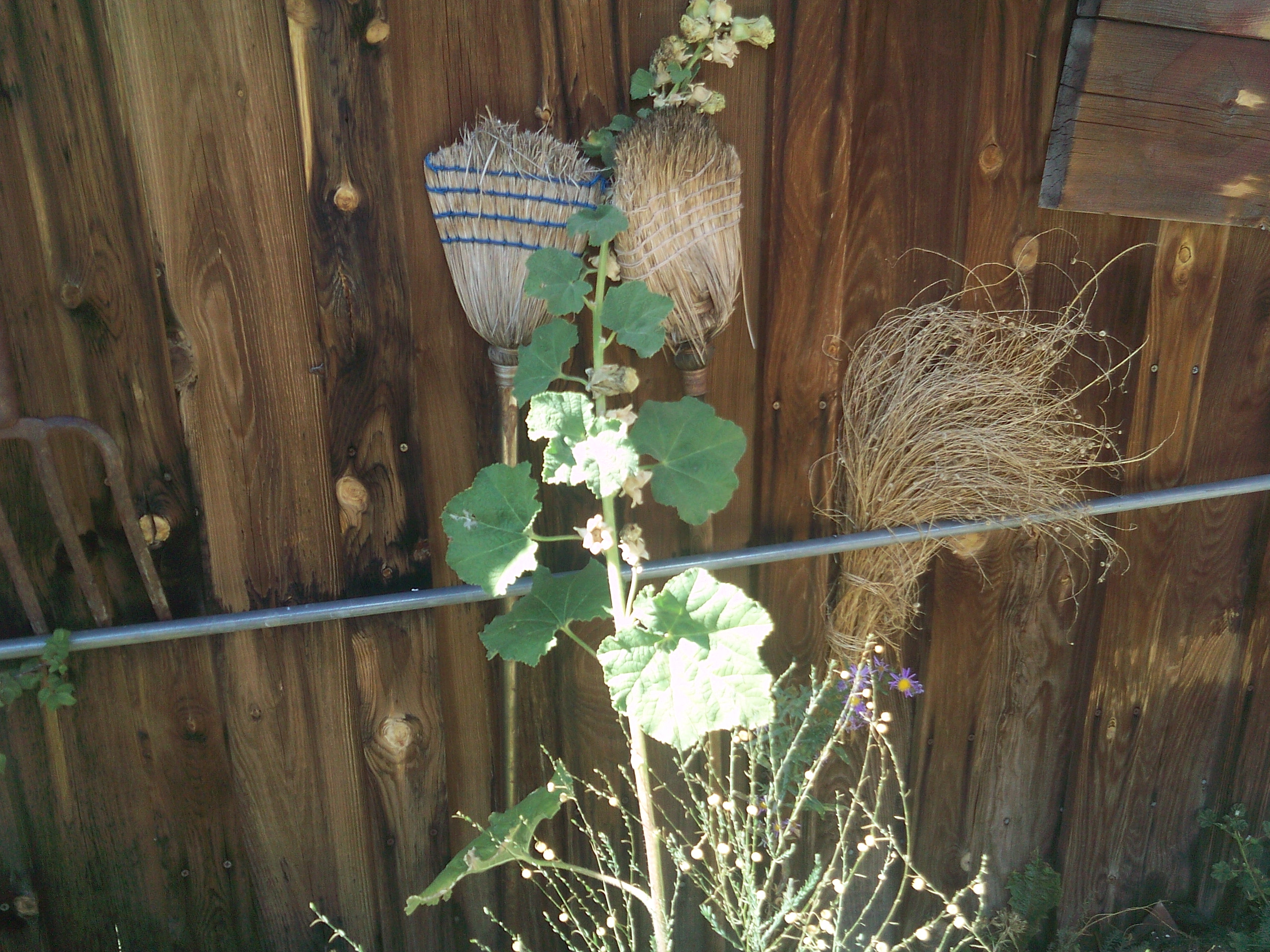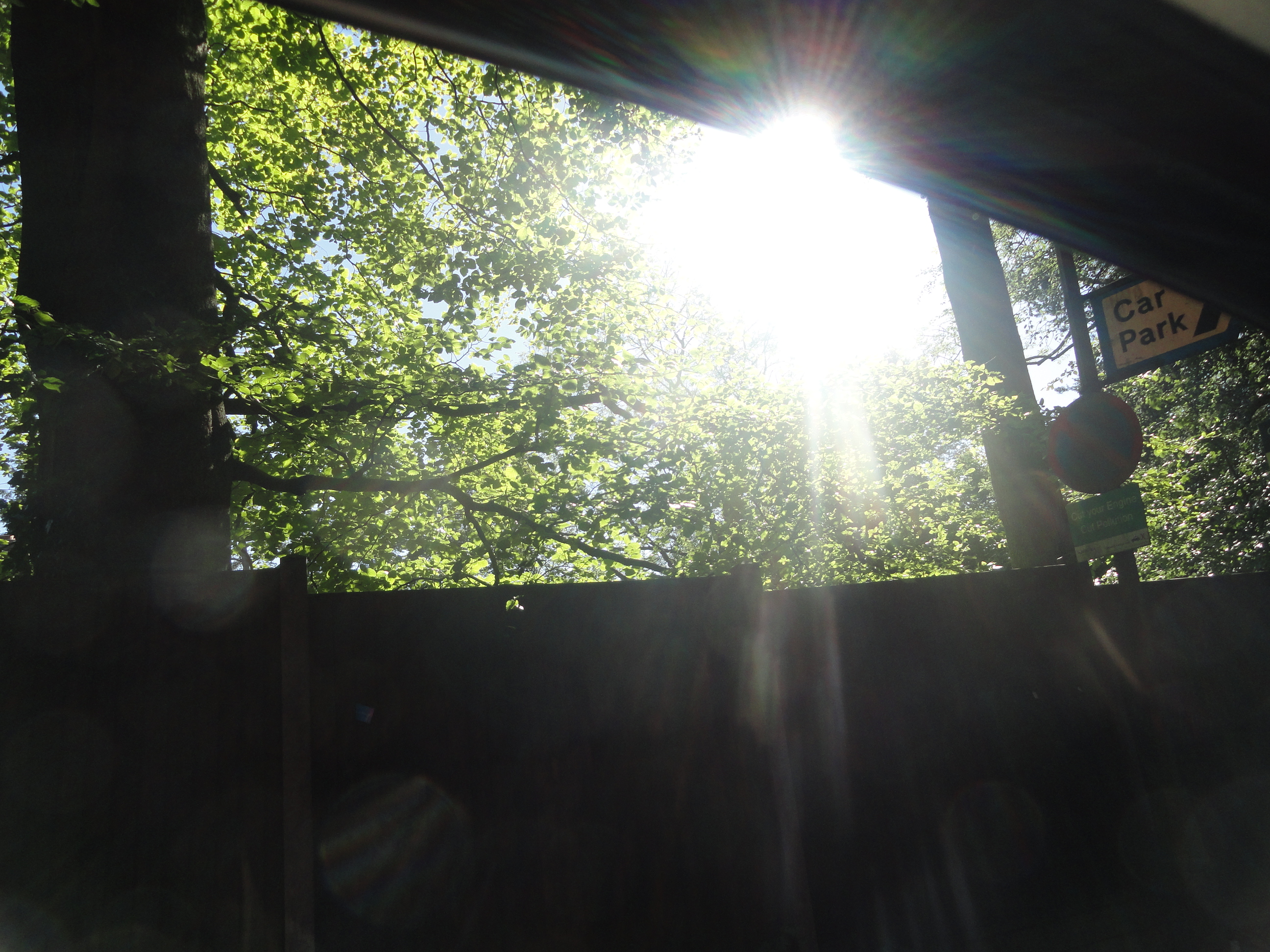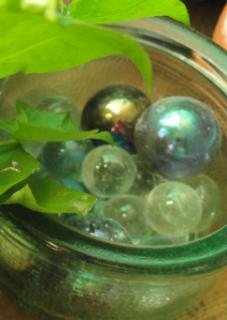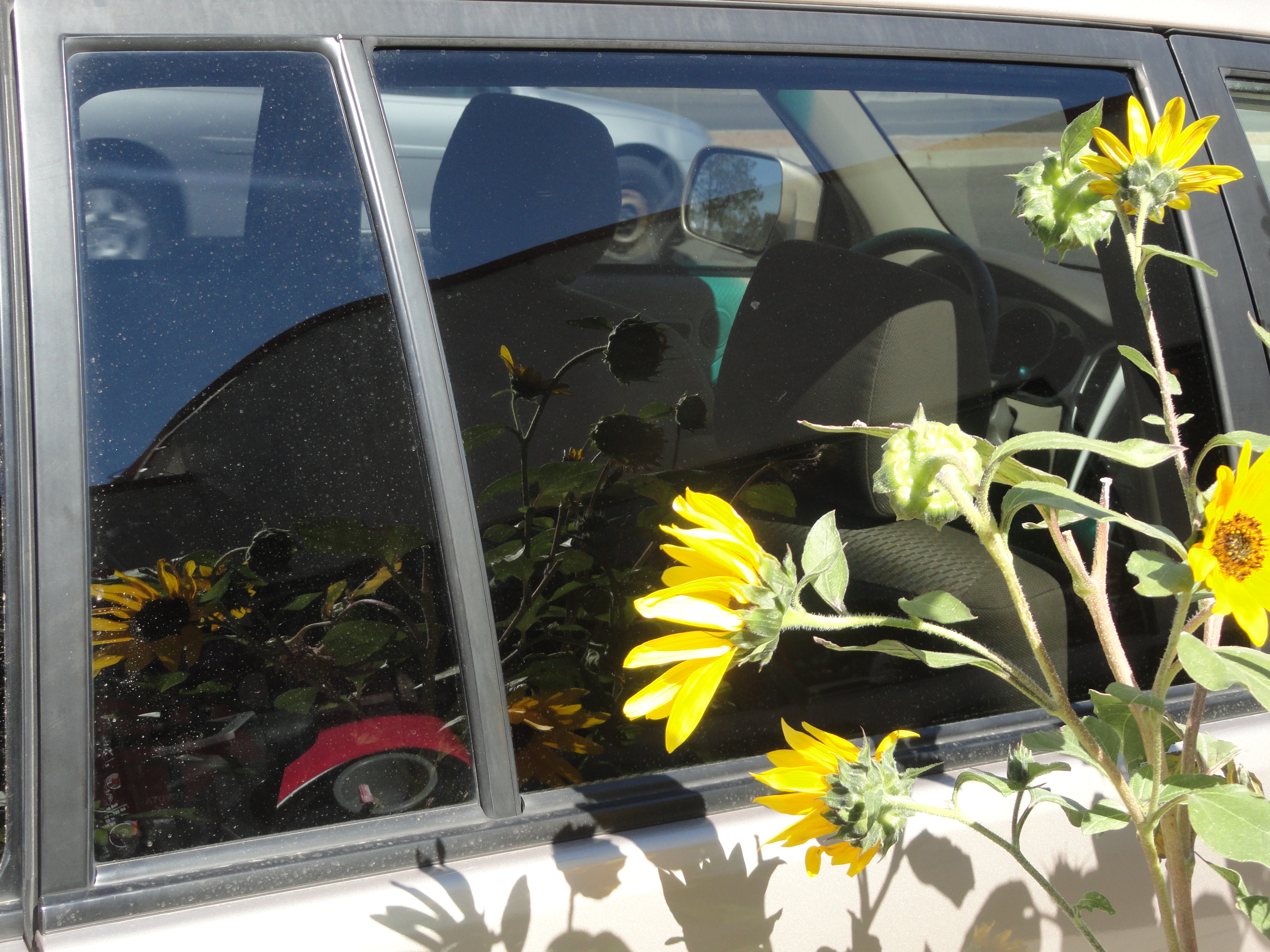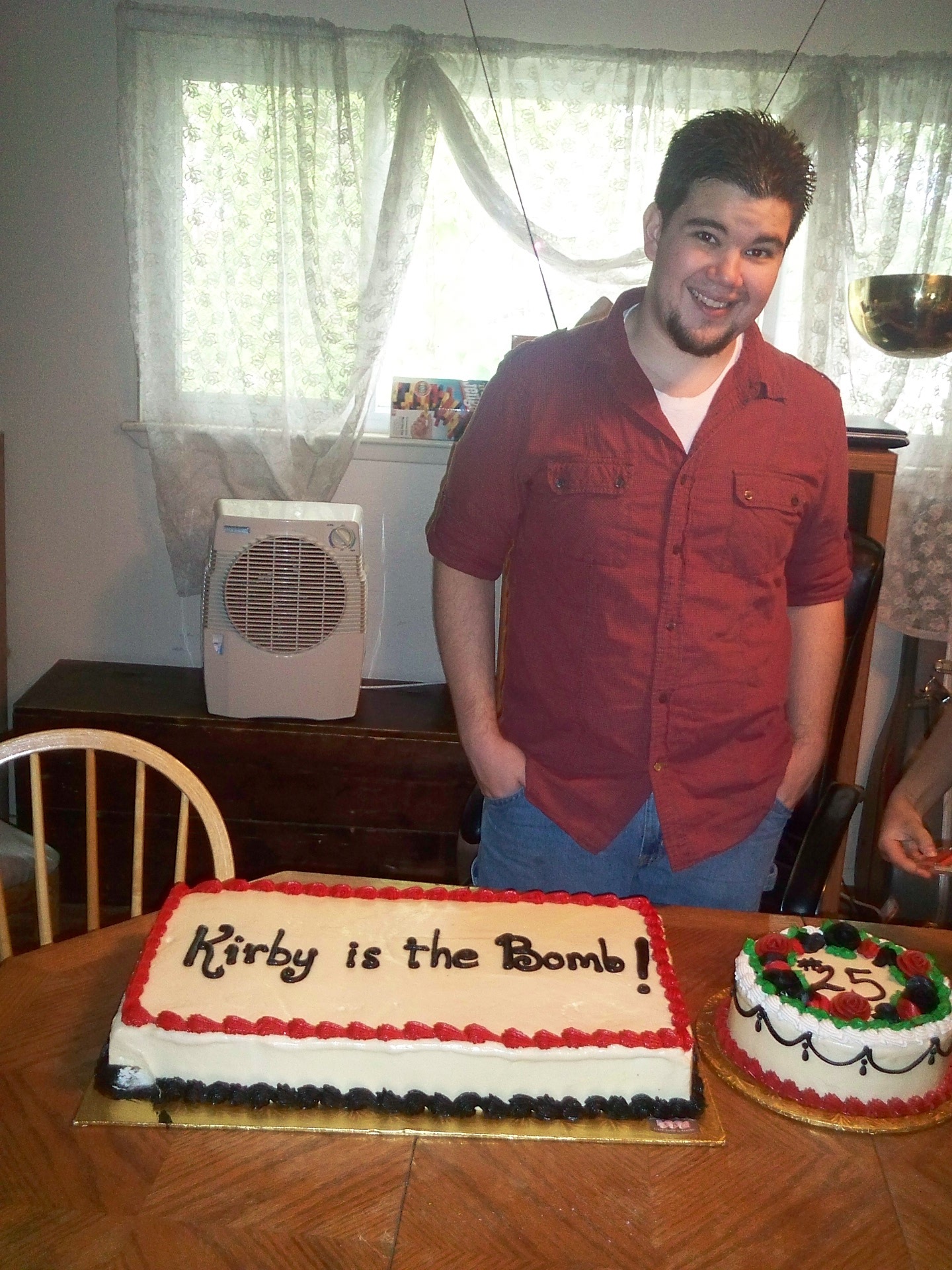
Let [babies] hear you speak, and find opportunities for them to hear others speak. Although there are justifications and theories about what babies like and respond to (high voices and sing-songy voices seem to appeal to babies), don't revert to a whole babytalk language with them. Some is fine, but talk to them about real things, too. Tell them what you're doing with them, and what they're seeing, when they're out and about. Don't quiz them, just talk. It's fine if they can't understand you for months and months. They'll be learning your tone and your moods and the speech patterns of the language even before they have vocabulary. You will be building a relationship that is not based on the meaning of the words, but on the sharing of the time and attention. You're paying attention to what the baby sees and touches and hears. The baby is paying attention to you.
If you can keep that up for eighteen years, you've got unschooling!
photo by Sandra Dodd, up into a little tree I sat under, in a gully;
not in New Mexico
(touch/click to enlarge)
___


